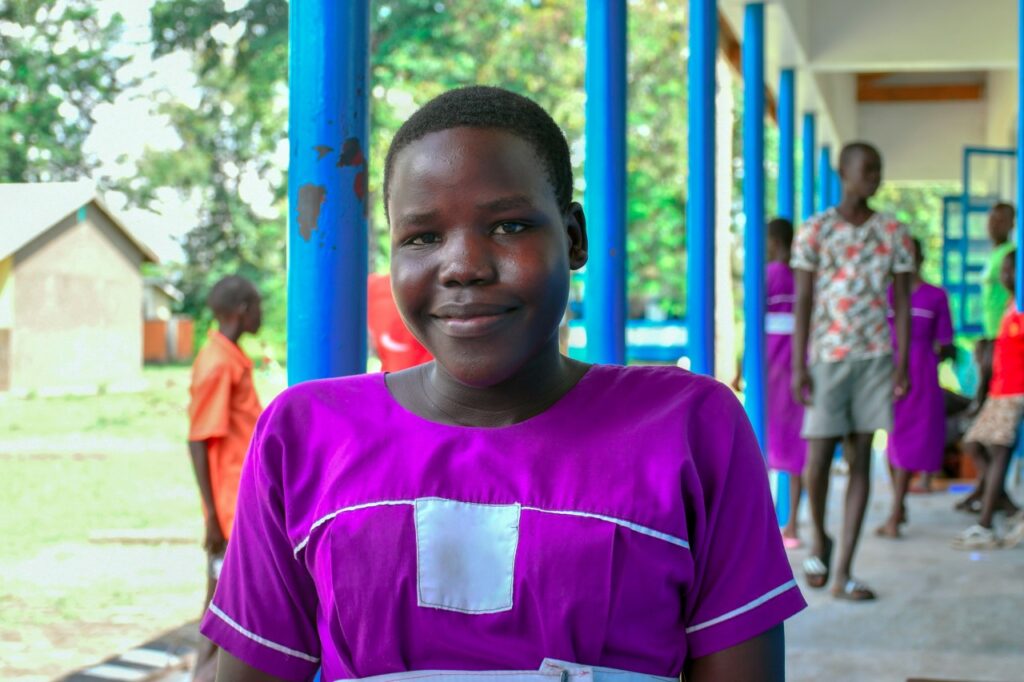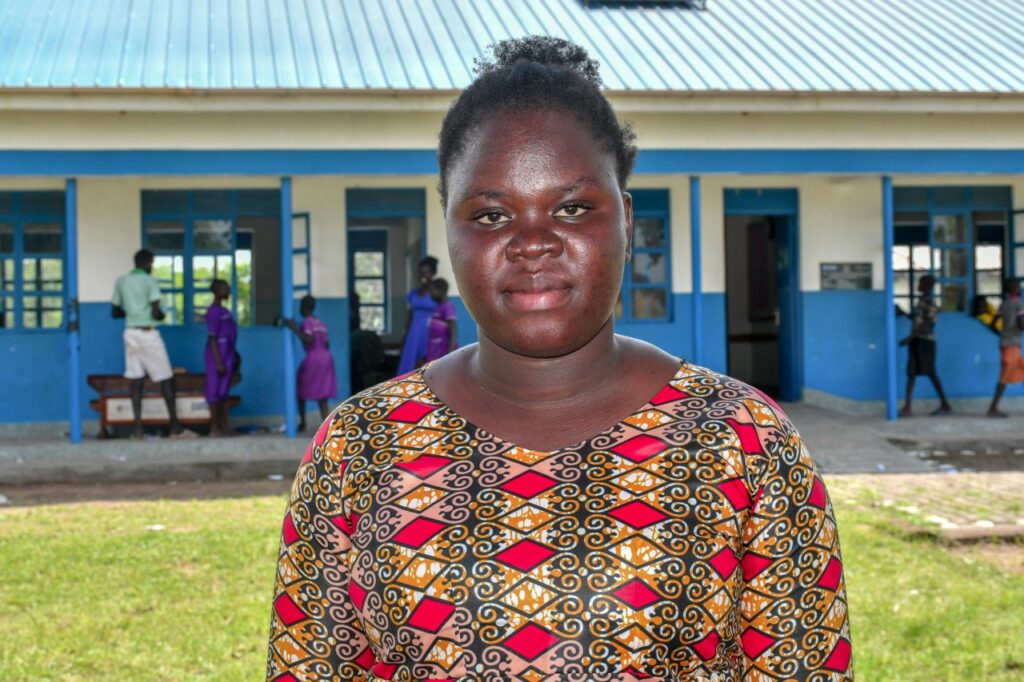Uganda hosts the largest number of refugees in Africa, an estimated 1.45 million people of whom 60% are children. Most have fled terrible ongoing conflict in neighbouring South Sudan and eastern Democratic Republic of Congo, and more continue to arrive every day.
Thousands of children from refugee and host communities are not in school. For those who can attend, the quality of education is poor. Classrooms are dangerously overcrowded and in need of repair, often with 200 children crammed into each class or learning under trees in the hot sun.
Multiple different languages are spoken in the same classroom. Literacy and numeracy levels are well below expected standards, and in such conditions it is difficult for children to learn effectively. The harsh conditions mean that large numbers of children drop out of school early, abandoning their education and reducing their opportunities in life.
17-year-old Scovia says she was stuck at home for three years after she dropped out of school. “I lost hope of ever returning to school. I had to do a lot of hard work at home.”

Plan International’s Girls’ Education in Crisis project is working in refugee settlements in northwestern Uganda, to support children affected by conflict back into the classroom. Funded by Dubai Cares, the project enrolls children whose education has been interrupted into an accelerated education programme.
Hellen Achola is the project manager for the project. She explains that the programme caters to students who have missed out on or had their education disrupted due to poverty, marginalisation and conflict.
The programme aims to reduce the number of out-of-school children in the settlements and support their reintroduction into the mainstream school system. “The accelerated education programme follows a curriculum that provides students with an equivalent level of education in a shortened time frame. There is a greater emphasis on literacy and numeracy with a social learning component,” Achola explains.
Special classroom blocks have been built at primary schools in the settlements to accommodate the additional number of students, as well as new latrines and water sources. Teachers have also received training in the techniques they can apply to help the new students learn at an appropriate level.
Martina, who is a teacher at one of the accelerated education centres, says that there are 217 children enrolled in the project at her school. “Before the programme was introduced, many pupils had dropped out of school and they were working in the community engaging in fishing, sand mining and charcoal burning among other things.”

Explaining that the programme is flexible, Martina says that girls who have had children are allowed to take time out during the day to breastfeed. “Girls tend to drop out-of-school earlier than boys. The reasons include teenage pregnancy, early marriage and social norms which prioritise the education for boys over girls.”
Scovia joined the accelerated learning project in 2022 and says she is very happy to be back in school. “I was worried that the other children would laugh at us because of our age, but they don’t. Actually, they treat us as their equals. The teachers are always encouraging us and tell us not to undervalue ourselves because of our age. Instead, they say we should concentrate and study hard.”